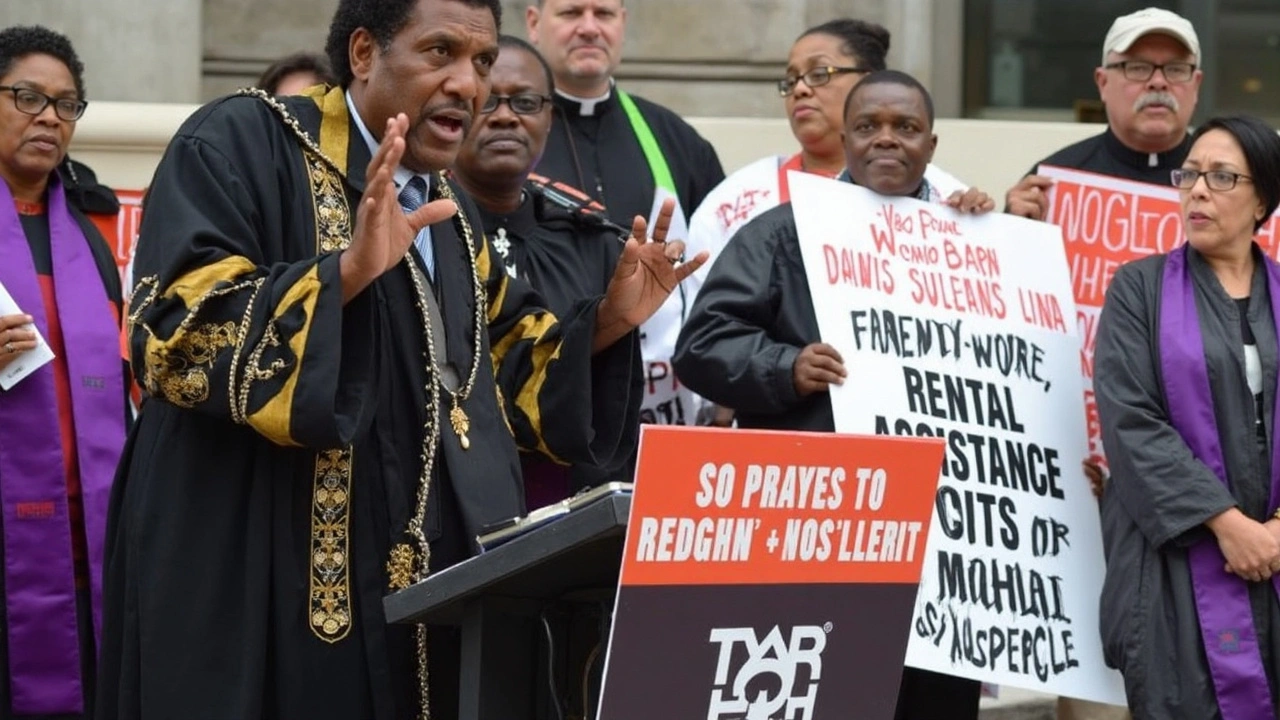Faith Leaders Call for Action during Holy Season
The days leading up to Easter 2025 look different for faith groups this year. Instead of just reflection and prayer, churches and faith leaders are speaking out louder than usual on the big issues facing society—especially the Gaza crisis and the fate of America’s most vulnerable.
The National Council of Churches turned the typical Lenten season focus outward, sending a direct letter to Secretary of State Marco Rubio. Their message? Shift U.S. policy to better align with Christian values, especially when it comes to the U.S. role in the worsening humanitarian situation in Gaza. They didn't mince words. The letter described U.S. aid restrictions to Palestinians as little more than "bargaining chips" and had harsh criticism for how U.S. tactics played out as the Israel-Hamas conflict continued to block vital supplies from reaching Gaza families.
Religious figures see this as a test of American morality. They argue that letting innocent civilians suffer—especially children and families stuck by blockades—is the opposite of the Christian mission to protect and uplift the vulnerable. It's not just about politics, it's about choosing compassion in policy, they say.
Ash Wednesday Protest Becomes a Moral Outcry
It wasn’t just letters. Bishop William J. Barber II, known for steady activism and leading Repairers Of The Breach, took protest to the heart of Washington, D.C. On Ash Wednesday—the day millions of Christians mark with ashes to reflect on humility and sacrifice—Barber and a coalition of Jewish, mainline Christian, and Black Protestant clergy gathered in front of the Capitol.
Their goal: deliver a stark message to lawmakers, slam recent cuts to Medicare, Medicaid, and Social Security, and call out efforts to erode the 14th Amendment rights. These clergy made it crystal clear—by showing up together, they weren’t talking about one issue, but a web of injustices they say all connect. From the international scale in Gaza, right down to how domestic policies are threatening healthcare and civil rights, the protest drew a straight line between faith and activism.
Bishop Barber was blunt: "It is astounding and shameful" for the U.S. to turn its back on its global responsibilities while stripping support from its poor and working-class citizens. Barber and his fellow clergy demanded repentance—not just private confession, but public reversal of policies that "crucify" the vulnerable.
Attendees of the rally didn’t just read a statement and leave. They called for ongoing resistance to what they described as targeted cruelty—from slashed safety nets at home to orphaned children in war zones abroad. By tying these issues together under the Lenten call to honesty, sacrifice, and transformation, they showed how spirituality and real-world advocacy can share a common ground. For them, prayer and protest aren’t separate. This Easter, the message is simple: faith demands action when compassion is on the line.



rakesh meena
April 23, 2025 AT 10:47Damini Nichinnamettlu
April 23, 2025 AT 18:53Vinod Pillai
April 25, 2025 AT 07:09Avantika Dandapani
April 26, 2025 AT 05:00Ayushi Dongre
April 26, 2025 AT 13:00sandeep singh
April 27, 2025 AT 14:34Sumit Garg
April 27, 2025 AT 20:39Sneha N
April 28, 2025 AT 15:09Manjunath Nayak BP
April 30, 2025 AT 09:21Tulika Singh
May 1, 2025 AT 19:36naresh g
May 2, 2025 AT 07:22Brajesh Yadav
May 3, 2025 AT 10:16Govind Gupta
May 5, 2025 AT 01:08tushar singh
May 6, 2025 AT 14:49Robert Shealtiel
May 7, 2025 AT 09:08Marrissa Davis
May 8, 2025 AT 01:57Sean Brison
May 8, 2025 AT 12:45Norm Rockwell
May 9, 2025 AT 20:37Lawrence Abiamuwe
May 9, 2025 AT 21:10